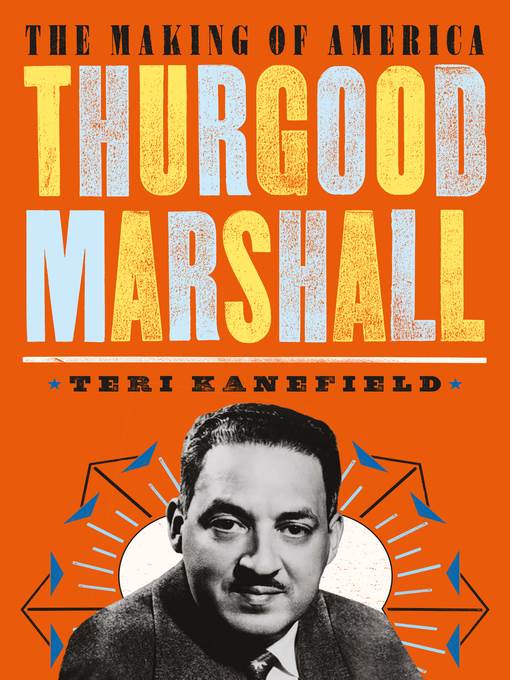
Thurgood Marshall
The Making of America #6
کتاب های مرتبط
- اطلاعات
- نقد و بررسی
- دیدگاه کاربران
نقد و بررسی

March 1, 2020
Gr 4-8-United States Supreme Court Justice and civil rights champion Thurgood Marshall is the subject of the most recent title in the "Making of America" series. Born in Baltimore in 1908, Marshall played a pivotal role in the civil rights movement, specifically school desegregation. Kanefield paints a nuanced picture of a courageous leader and includes information about his complex relationship with his first wife, activist Vivian "Buster" Burey. Although some of the pacing drags, particularly descriptions of legal battles, the book's strengths outweigh its weaknesses. The final chapter contextualizes Marshall's legacy with current events. The author's final paragraphs are a good jumping-off point for further conversation and critical thinking about the future of American government. VERDICT A mostly approachable biography about a key player in the civil rights movement and one of the great legal minds of the 20th century. Purchase to refresh dated biographies on Marshall.-Jennifer Knight, North Olympic Library System, Port Angeles, WA
Copyright 2020 School Library Journal, LLC Used with permission.

January 1, 2020
America's first African American Supreme Court justice had a profound impact on constitutional law both before and during his time on the bench. Thurgood Marshall, with his keen intellect, personal drive, and passion for justice, fought through the difficulties of the Jim Crow era in the United States. His personality allowed him to cope with the harsh realities of challenging the enduring systemic discrimination. While attempting to scrape out a living as a private attorney, Marshall also found time to tackle civil rights cases and helped win the case that ended segregation at the University of Maryland Law School, the same law school that denied him entrance. When Charles Houston, his former Howard Law School dean, offered him a position at the NAACP, he leapt at the opportunity. His success there with Brown v. Board of Education and other cases brought him to the attention of President Lyndon B. Johnson, who ultimately appointed him to the Supreme Court. As in others in Kanefield's series, readers see how her subject's early life and career influenced his outlook on how the U.S. Constitution should be interpreted and applied. Kanefield's narrative is lively, and she provides important context where needed, such as how even though Marshall and Dr. King agreed on the need for change, Marshall did not agree on King's strategy of civil disobedience. An important addition to a highly useful series. (timeline, excerpts of Marshall's writings, source notes, bibliography, index) (Biography. 10-14)
COPYRIGHT(2020) Kirkus Reviews, ALL RIGHTS RESERVED.

























دیدگاه کاربران